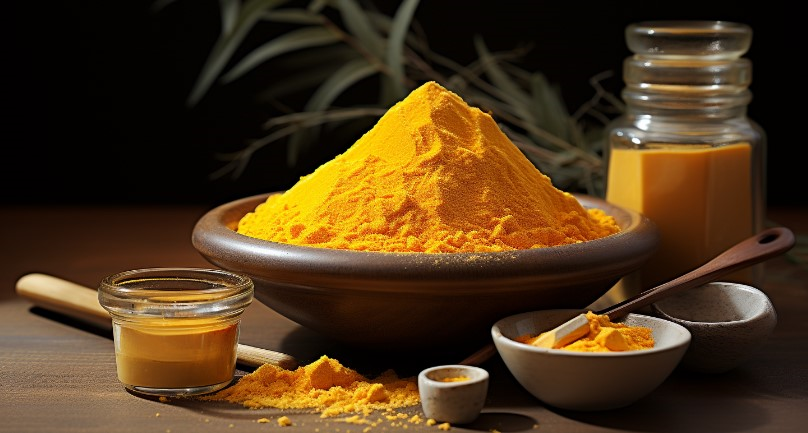Coenzyme Q10 – the body’s universal nutrient

As an important coenzyme, Coenzyme Q10 plays an important role in maintaining normal physiological functions of the human body, maintaining health, and preventing and treating a series of diseases. Next, let’s take a closer look at Coenzyme Q10.
Coenzyme Q10, also known as ubiquinone 10, is a fat-soluble quinone with a structure similar to that of vitamin K. It is named after the side chain at the sixth position of the mother nucleus, the polyprenyl group, with a degree of polymerization of 10. Quinone ring compounds.
Coenzyme Q10 Research status
At present, research on coenzyme Q10 mainly uses methods such as molecular biology, nutrition, biochemistry and pharmacology. Among them, the development of molecular biology technology and biochemistry technology has provided strong technical support for basic research on the structure and metabolic pathways of Coenzyme Q10, while research on nutrition and pharmacology is more beneficial to exploring the health effects of Coenzyme Q10. and clinical applications.
Coenzyme Q10 Efficacy
In fact, Coenzyme Q10 is found in many parts of the human body, such as the pancreas, heart, kidneys, and liver. It is very rich in content. Because of this, its impact on the human body is also multifaceted:
Acts on the heart
①Nutrition the heart muscle
Coenzyme Q10 exists in the mitochondria of myocardial cells that are responsible for producing energy. It can help myocardial cells produce energy, help increase the oxygen carrying capacity of myocardium, have a good strengthening effect on the heart, and prolong the life of myocardium.
②Reduce heart damage
Coenzyme Q10 can promote cell oxidative phosphorylation, improve myocardial energy metabolism, and reduce ischemia damage to myocardium.
② Protect blood vessels
Coenzyme Q10 can remove peroxidized lipids in blood vessels, lower cholesterol, and thereby prevent arteriosclerosis.
Control blood pressure and protect blood vessels
High blood pressure is closely related to excessive reactive oxygen species and lack of nitric oxide in the body. Excessive free radicals in the body will react with nitric oxide in the cell endothelium. The reduced amount of nitric oxide will cause vasoconstriction and increase blood pressure.
Coenzyme Q10 can maintain the bioavailability of nitrogen oxides and induce vasodilation in patients with hypertension.
A study published on Healthline showed that after patients with high blood pressure take high blood pressure drugs (except reserpine), the content of coenzyme Q10 in the patient’s body will decrease; and patients taking antihypertensive drugs while taking coenzyme Q10 can increase blood pressure reduction. Effect.
Improve Parkinson’s symptoms
According to research from the State Key Laboratory of Neurobiology at Capital Medical University, mitochondrial function in Parkinson’s patients will be impaired. When Parkinson’s patients are supplemented with coenzyme Q10, the mitochondrial damage in the patients’ bodies will be alleviated to a certain extent, and thus Improve daily living abilities and reduce the occurrence of depression in Parkinson’s patients.
Reduce the number of migraines
The International Journal of Headache published a study in which 31 patients participated in a 4-month experiment (the first month was the baseline survey, and the following 3 months were the experimental period), taking 150 mg of Coenzyme Q10 every day.
The results showed that 61.3% of the patients had greatly reduced the number of migraines (halved), from 7.34 days to 2.95 days. And there were no side effects during the entire experiment.
Strong skin barrier
Coenzyme Q10 is also found in cells and skin surface lipids. It is one of the components of the stratum corneum. Together with other substances, it serves as the outermost barrier of the skin to resist attacks by oxidants.
Coenzyme Q10 is also added to some skin care products, which can protect the skin from reactive oxygen species and reduce DNA damage and inflammatory reactions caused by ultraviolet radiation.
Who needs to supplement Coenzyme Q10?
Patients with cardiovascular and cerebrovascular diseases
Coenzyme Q10 plays a key role in preventing sudden heart disease, especially during myocardial hypoxia.
Beauty lovers who need anti-oxidation and anti-aging
Coenzyme Q10 can directly participate in free radical reactions in the human body and play an antioxidant role, thereby reducing damage to the human body.
Sub-healthy people
It is especially suitable for middle-aged people who have various metabolic syndromes and sub-health problems found in physical examinations. Coenzyme Q10 plays a great role in protecting the health of the cardiovascular and cerebrovascular systems and is a veritable “source of heart vitality.”
People with ovarian hypofunction
improve oocyte quality.
People who need to improve immunity and enhance physical vitality
Coenzyme Q10 has excellent antioxidant capacity, can rejuvenate cell energy, and enhance immunity.
People with high blood lipids
Coenzyme Q10 can relieve the symptoms of coenzyme deficiency in the body caused by long-term use of statin drugs.
How to get enough CoQ10?
About 3/4 of the coenzyme Q10 in the human body is produced by itself, and a small part comes from food supplements. Foods such as marine fish, beef, chicken, nuts, seeds, etc. all contain Coenzyme Q10.
With the influence of age, environment, and specific medications, reliance on autosynthesis and daily diet may not be enough to compensate for physiological or pathological CoQ10 deficiency. In this case, proper use of nutritional supplements can help maintain adequate levels in the body.
